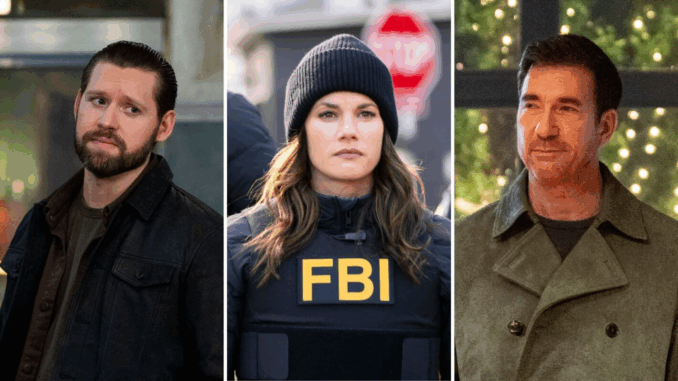
CBS’s FBI returned for its highly anticipated Season 8 premiere with a pulse-pounding hour that reasserted why the series remains one of television’s most reliable procedural thrillers. But this wasn’t just another case-of-the-week episode. The opener, titled “Domestic Front,” threw the task force into one of its most chaotic and emotionally charged missions yet — confronting a radical civilian militia operating on American soil. The result is a premiere that’s both a high-stakes thriller and a sobering reflection of how fragile trust has become in a world fractured by fear and misinformation.
From its opening moments, the tension is palpable. A coordinated explosion at a suburban courthouse sets the tone: this season isn’t playing it safe. The agents, led by Special Agent Maggie Bell (Missy Peregrym) and OA Zidan (Zeeko Zaki), quickly realize they’re dealing with more than just isolated extremists. The group responsible — a well-funded militia calling itself “The Sovereigns” — is organized, disciplined, and dangerously disillusioned. Their ideology? That federal agents are the enemy, and “justice belongs to the people.”
The first act sets up an eerie mirror between the task force and the militia — both bound by loyalty and belief in a moral code, but standing on opposite sides of the same conviction. Maggie’s interrogation of a captured member reveals that many in the militia were ordinary citizens radicalized by online rhetoric. This moral ambiguity gives the episode its sharpest edge: FBI isn’t just showing a shootout, but a collapse of shared truth.
As the case unfolds, OA’s internal struggle takes center stage. Haunted by memories of past operations where civilians paid the price, he becomes wary of the Bureau’s methods. His doubts clash with Jubal Valentine’s (Jeremy Sisto) unwavering faith in procedure, creating a moral standoff within the team. Their debate — whether to storm a compound holding hostages or wait for negotiation — drives the emotional heartbeat of the episode.
The climax comes in a harrowing third act: a raid gone wrong. A young agent, newly transferred to the unit, is fatally shot in an ambush. The moment is shocking not for its spectacle, but for its stillness — a reminder of how fragile life is in the world FBI portrays. Maggie’s expression as she watches the agent fall — a mixture of guilt and cold fury — becomes one of the most haunting images of the series to date.
The loss reverberates through the team, setting up long-term emotional stakes for the season. Maggie questions whether the Bureau is doing enough to prevent domestic radicalization before it turns violent. OA, shaken, retreats into himself, suggesting a psychological arc that could define his storyline this year. Meanwhile, Isobel (Alana de la Garza) faces mounting pressure from Washington to downplay the militia’s reach — a political tension that feels uncomfortably relevant.
From a production standpoint, the Season 8 premiere feels cinematic. The direction by Alex Chapple uses tight framing and desaturated tones to emphasize paranoia and claustrophobia. The score pulses like a ticking clock, amplifying the sense that danger is everywhere — not just from bombs or bullets, but from ideologies that turn neighbors into enemies.
By the episode’s end, the immediate threat is neutralized, but the victory feels hollow. The closing scene — a news broadcast downplaying the event as “an isolated incident” — underscores the show’s message: that denial is as dangerous as violence. Maggie’s closing line, “This isn’t the end — it’s the beginning of something worse,” lands like a prophecy.
Season 8 opens with more than just action — it delivers a chilling warning about the world outside the screen. Trust, FBI suggests, is the first casualty of anarchy.